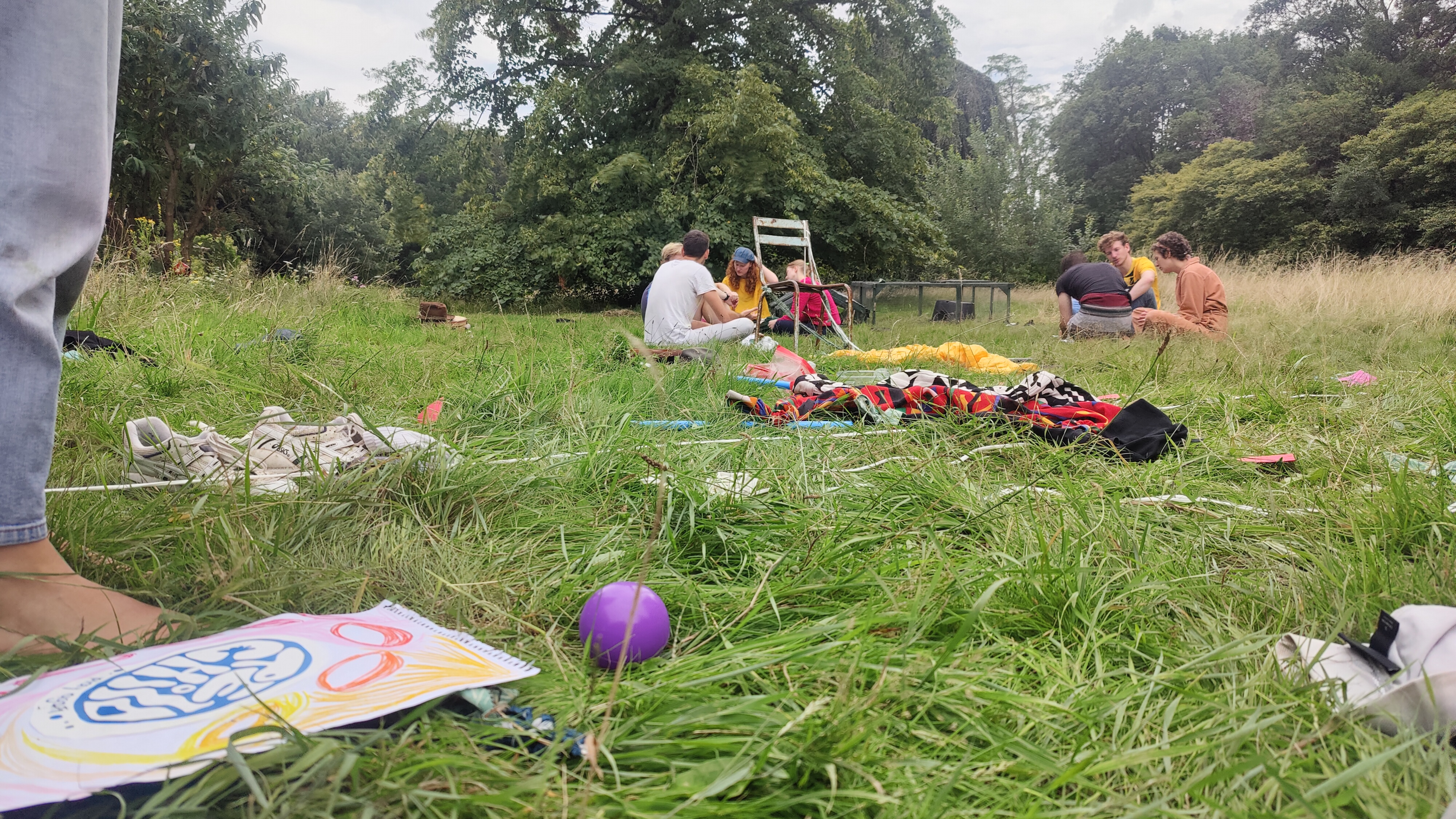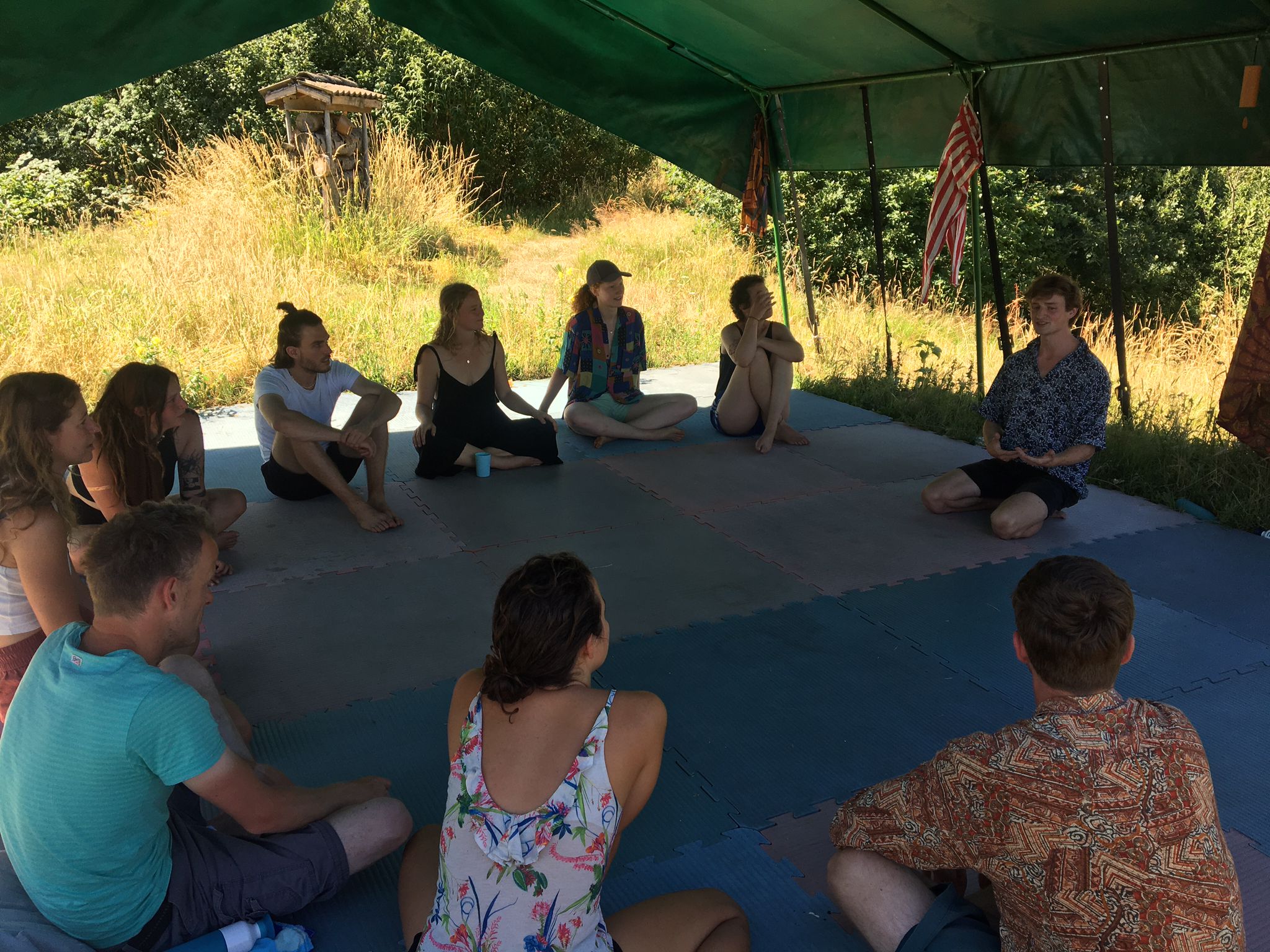What is Play and why Play?
“Play is nonsense! Yes it is. It is really important nonsense. The point of play is that there really is no point. How liberating is that! In a world that is product-obsessed, that’s end-orientated, to be in a moment and share an experience with the people around you is kind of a radical thing. I think the power of play has this incredible capacity to disarm us, to tear down these barriers that we build up within ourselves and walls we build between each other, and make that solid parts a little more liquid and permeable so that we can really connect.”
- Mallory Nezam
'Play' is a word we use in a lot of different contexts. You can play an instrument, play music, play with your friends or watch a play. For the sake of making things simple here I tell you about the five mindset of play:
Self-chosen & self-directed
Play is what one wants to do, as opposed to what one feels obliged to do. In play we have people making up the rules of their own play and chosing to changing and direct this themselves every moment.
Instrinsic motivation
You choose what you want and how you want to play. People who play themselves think for themselves, it’s done for its own sake more than for some external reward.
Active, alert & relax
Play is not a response to external demands, and because the ends do not have immediate consequences in the real world, it is stress free. Although most of the times players like to challenge themselves, were they need focus and attention for.
Own rules
Play always has structure, and that structure comes from rules in the players’ minds. Anyone may propose rules, but the rules must be agreeable to all. This could be simple as not hurting each other.
Imagination
By saying “Imagine that…” anything is possible.
Play provides the engine for cultural innovations because it develops creativity and the ability to think in ways that go beyond the real world and the concrete here-and-now.
Play is what one wants to do, as opposed to what one feels obliged to do. In play we have people making up the rules of their own play and chosing to changing and direct this themselves every moment.
Instrinsic motivation
You choose what you want and how you want to play. People who play themselves think for themselves, it’s done for its own sake more than for some external reward.
Active, alert & relax
Play is not a response to external demands, and because the ends do not have immediate consequences in the real world, it is stress free. Although most of the times players like to challenge themselves, were they need focus and attention for.
Own rules
Play always has structure, and that structure comes from rules in the players’ minds. Anyone may propose rules, but the rules must be agreeable to all. This could be simple as not hurting each other.
Imagination
By saying “Imagine that…” anything is possible.
Play provides the engine for cultural innovations because it develops creativity and the ability to think in ways that go beyond the real world and the concrete here-and-now.








We care about mental health. The need to play is as fundamental as our need for food and sleep no matter your age, joy is healthy.
Multiple research studies have proven the negative impact that the lack of play brings, such as youth depression, poor adaptability or mood-driven behavior.
“The opposite of play is not work, it is depression”
- Stuart Brown
![]()
Multiple research studies have proven the negative impact that the lack of play brings, such as youth depression, poor adaptability or mood-driven behavior.
“The opposite of play is not work, it is depression”
- Stuart Brown







